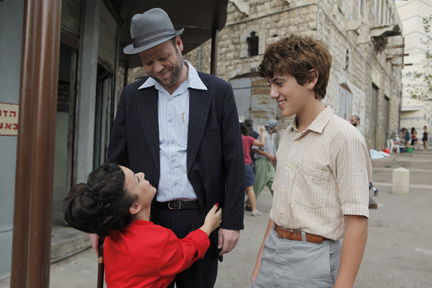
From left, Bat-el Papura, Adir Miller and Tuval Shafir (Eyal Landesman/Menemsha Films)
The Matchmaker gathers a rich panoply of characters at a colorful crossroads, when Israel awkwardly tries to forget the past and look forward to the future. Unfortunately, the story that links everyone together is even more of a misfit.
In the prologue, the Bursteins, father (Dror Keren) and adult son Arik (Eyal Shechter), perilously drive down the streets of Haifa in 2006 as rockets rain down on the northern city during the second Lebanon War. Curiosity has brought them out to meet with a lawyer who surprises them with news of an inheritance from a man they pretty much haven’t seen since the summer of 1968. The film then flashes back to what was then an atmospheric port, poorer, but more diverse with Arabs, immigrants from Eastern Europe and Iraq, ex-kibbutzniks, black marketers, gamblers, sailors, prostitutes, and, especially, Holocaust survivors—some damaged on the outside, some on the inside, and all silent about their difficult pasts.
Arik is then a gawky teenager (now played by Tuval Shafir), who gets drawn into an old, I.B. Singer-esque world. He’s apprenticed to his father’s scarred friend from the old country, Yankele Bride (Adir Miller), whose day job is a matchmaker for hard-to-match misfits, and whose mysterious nights behind locked doors involve fencing smuggled goods and running illegal card games. (Only this character is taken from a novel that’s not available in English.) During the day, Arik becomes a detective, following Yankele’s clients to check their veracity, like in the pulp fiction recommended to him by a mousy librarian Meir (Dror Keren). And at night, Arik get blasted by the loud rock ‘n’ roll listened to by a sexy, liberated American, in a subplot which will turn out to be a clichéd rendering of a budding writer’s first love. (That Israeli teens could have been so oblivious to outside influences makes them seem as isolated as the South Africans were at that time in Searching for Sugar Man).
Two women in the matchmaker’s orbit are intriguing, well-acted portraits of different coping mechanisms for posttraumatic stress after the liberation from the camps, when they must have been very young. Sylvia (Bat-el Papura) is inspired by a real person, a dwarf in the Ovitz family of seven small siblings who were popular performers in Romania, and saved in Auschwitz for experimentation by Dr. Mengele. In Israel, the family reformed their performing troupe, then retired to manage a movie theater. Here they are portrayed as screening only love stories, mostly escapist Hindi musicals. (Their story deserves its own movie.) Sylvia hires Yankele, optimistically insisting that he find her soul mate. The second woman is Yankele’s business, and possibly romantic, partner, the beautiful blonde Clara Epstein (Maya Dagan), who has the fragility of Marilyn Monroe. She coaches Yankele’s clients and hostesses his gambling parlor. But when one of his new clients, the timid Meir, pursues the nervous Clara instead of the matchmaker’s arrangement, it sets off an odd combination of comic and tragic events.
(The theme of Israelis’ apathy and/or suspicion towards the large number of Holocaust survivors in their midst may seem a bit alien to an American audience, with the frequent references to a real, furtively read lurid book that purported to be non-fiction about extreme situations in the camps. These so-called “stalag novels” sound like sexploitation versions of Lina Wertmüller’s Seven Beauties.)
In addition to the Arik’s constant, obvious narration, the visual imagery is frequently too blatant. Yankele’s office is directly across from a bagel bakery. Oven flames constantly reflect through his windows and on his face as a heavy-handed symbol of Auschwitz.
Though aided by the beautiful views of the Haifa cityscape, some amusing entertainment, and flashes of poignancy, the appeal is mostly heavily laden, cross-generational nostalgia, which worked very well in writer/director Avi Nesher’s Turn Left At the End of World (2004) about another mixed immigrant community. However, The Matchmaker makes for a disappointing follow-up to his more passionate Secrets (2007), centered on rebellious Orthodox women.

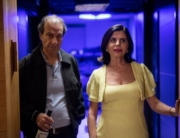
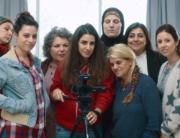

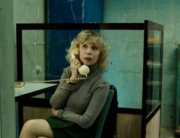
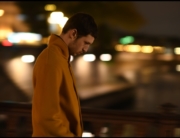
Leave A Comment